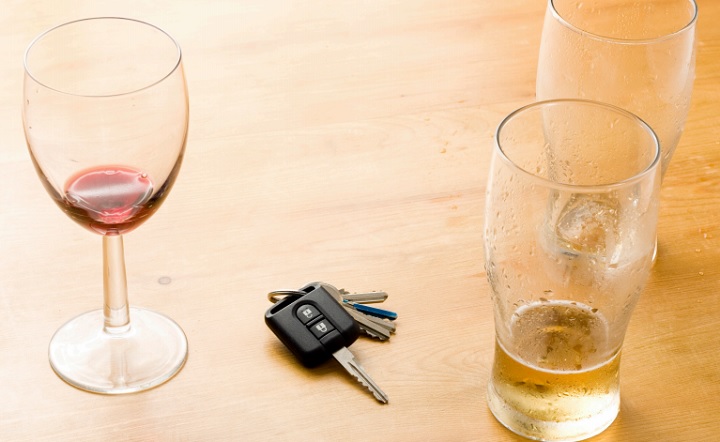
A new report is challenging the Government’s ‘rigorous enforcement’ approach to tackling drink-driving, after revealing a fall in the number of dedicated roads policing officers and the number of breath tests being administered.
Published today (8 Dec), the Institute of Alcohol Studies (IAS) report says the number of dedicated roads policing officers in England fell by 27% between 2011/12 and 2015/16.
The report says lowering the drink drive limit would be a more effective way to reduce deaths and injuries, rather than trying to enforce the current limit with diminishing resources.
The report shows there were 149,677 fewer breath tests conducted in 2015 than in 2011, which equates to a 25% reduction. It says that if breath testing had been maintained at 2011 levels, there would have been 260,681 more breath tests performed in the period 2012-15 inclusive.
The report also finds that the average roads policing budget for forces across the country has steadily declined from £5.3m in 2011/12 to £4.35m in 2015/16, a 17.9% reduction per force.
The IAS report – based on a combination of FOI requests and published data from police forces in England – calls for a UK-wide reduction in the legal blood-alcohol limit, from 80 to 50 milligrams per 100ml blood. The authors say the lower limit would save at least 25 lives and 95 serious casualties each year.
Despite this evidence, the report says the Government maintains that ‘rigorous enforcement’ of the current limit alone will better address this problem.
The report describes lowering the drink drive limit as a ‘cost-effective, compassionate step’ the UK Government can take to protect the public and relieve pressure on the ‘increasingly embattled (police) forces’.
The RAC describes the report’s findings as ‘a worrying development’.
Pete Williams, RAC road safety spokesperson, said: “Falling roads traffic police officer numbers are stretching forces and one impact of this appears to be a reduction in breathalyser tests which is a worrying development.
“RAC research has found that around five million drivers believe they have got behind the wheel while over the limit at least once in the past year.
“Our research also found there is extensive general public support for a UK-wide reduction in the legal blood-alcohol limit to 50 milligrams – as enforced in Scotland – or even to 20 milligrams, with six in 10 (59%) British motorists saying they are in favour of this becoming law.”
The bottom line is that the Govt. plays the enforcement card when telling the public about drinking and driving, yet it is underhandedly and relentlessly cutting the numbers of those officers whose primary focus is to concentrate upon the enforcement of road safety legislation. Those who think that there are plenty of other officers sloshing about in the system with nothing to do are sorely mistaken. Response Officers are run ragged dealing with other matters.
This deceitful practice ought to be exposed, and if this report goes some way towards that then I say ‘Well done’. It is wrong in every way to expect the job to be done without being prepared to put one’s hand in one’s pocket to buy the tools to do it effectively. The Govt., as usual, wants to eat its cake while still having it. The general public are not stupid and know very well that the chances of being stopped for a breathalyser test are at best remote. Therefore, many of them will take their chance and risk my life in so doing. Sadly, the KSI figures are lag indicators, and the horse will have long departed the stable when its absence is noticed. Cut Roads Policing Units at your peril.
David, Suffolk
0
Surely you’re not saying David, that if any officer, in any capacity, when out and about (emergencies excepted) would ignore an obvious drunk driver or any dangerous driving and would not prioritise it as requiring immediate action? If that’s the case, then that is indeed a sad state of affairs and that is what needs addressing, not the job title of individual officers. When there is a collision, there does not seem to be any shortage of officers to attend quickly, who I presume were not otherwise ‘sloshing about in the system with nothing to do’.
In my past experience, from PCSOs to local beat bobbies, officers will find the time and enthusiasm to get ‘stuck-in’ on everyday motoring offences, which includes roadside breath tests, if and when required – spotting motoring offences is not rocket science and I don’t believe there is a need for it to be the exclusive domain of specialist or highly-trained officers.
Hugh Jones, Cheshire
0